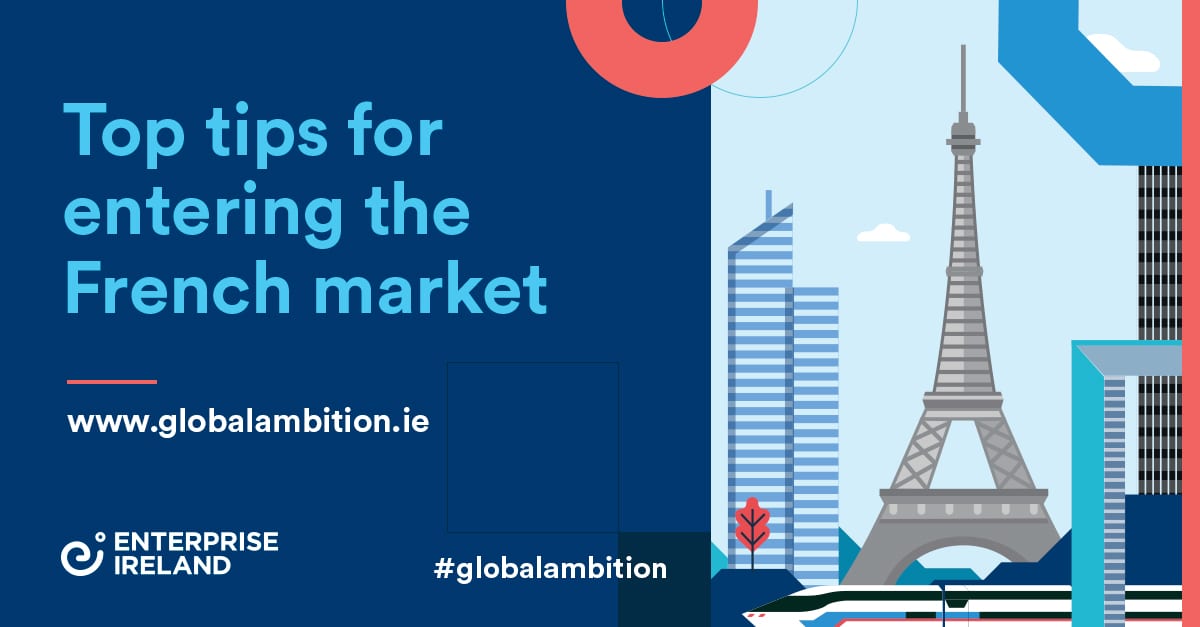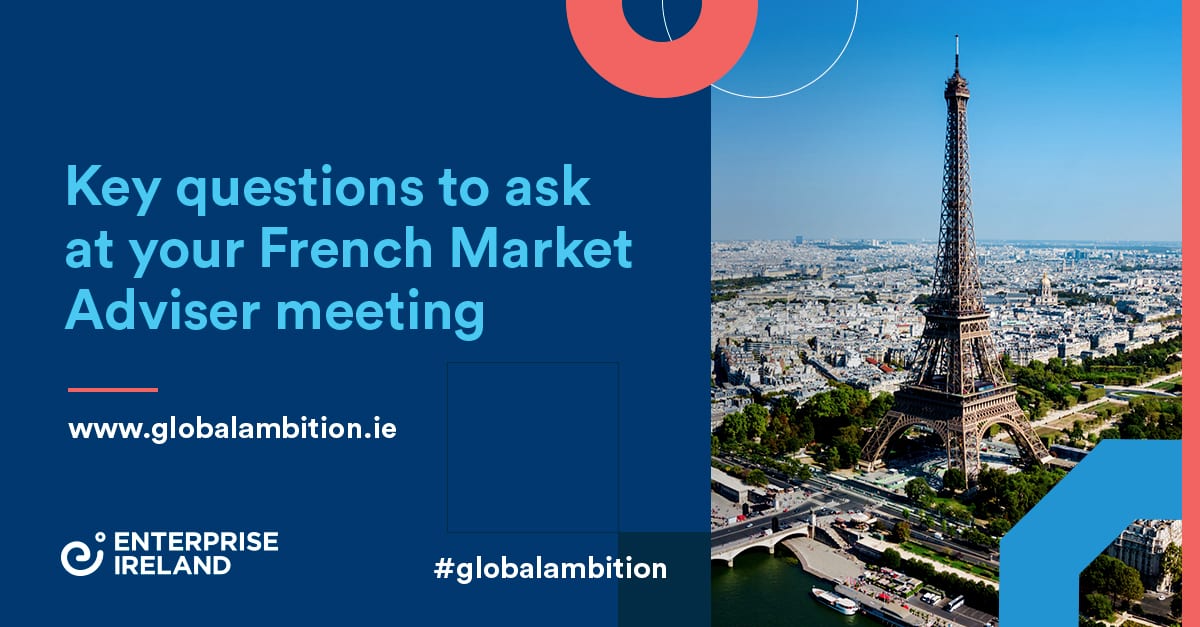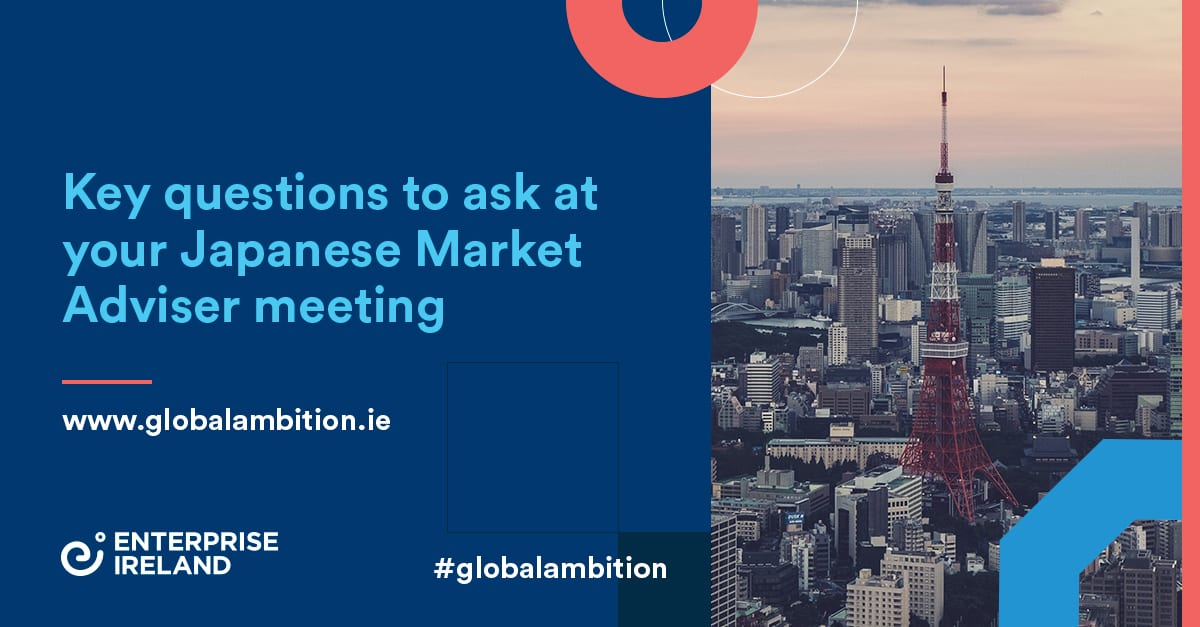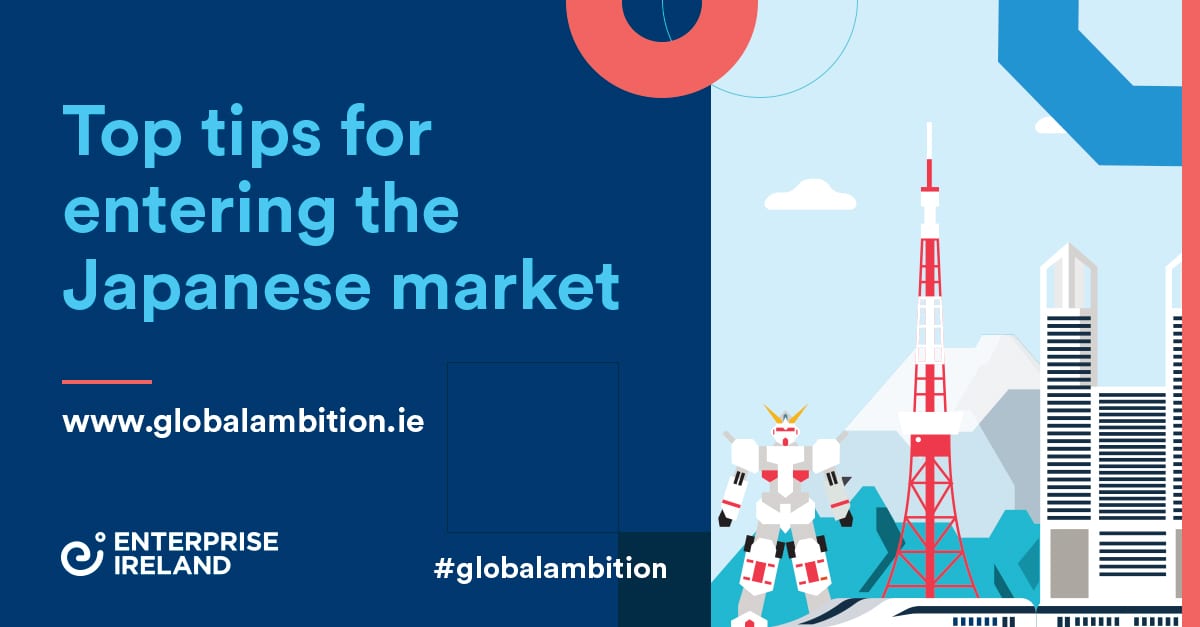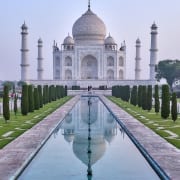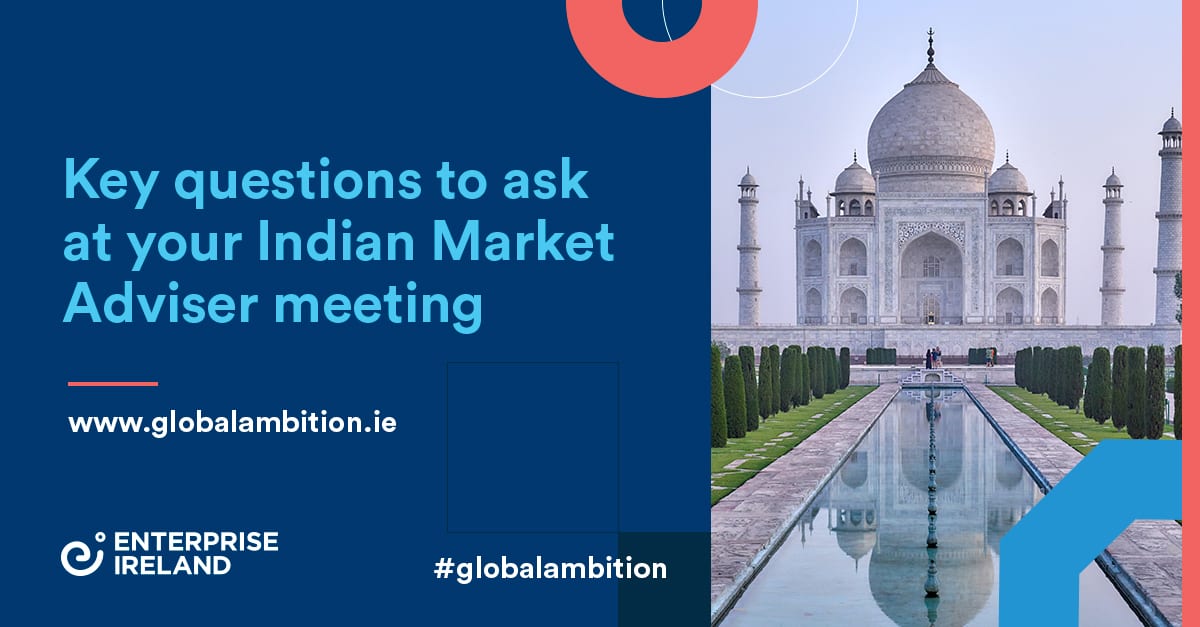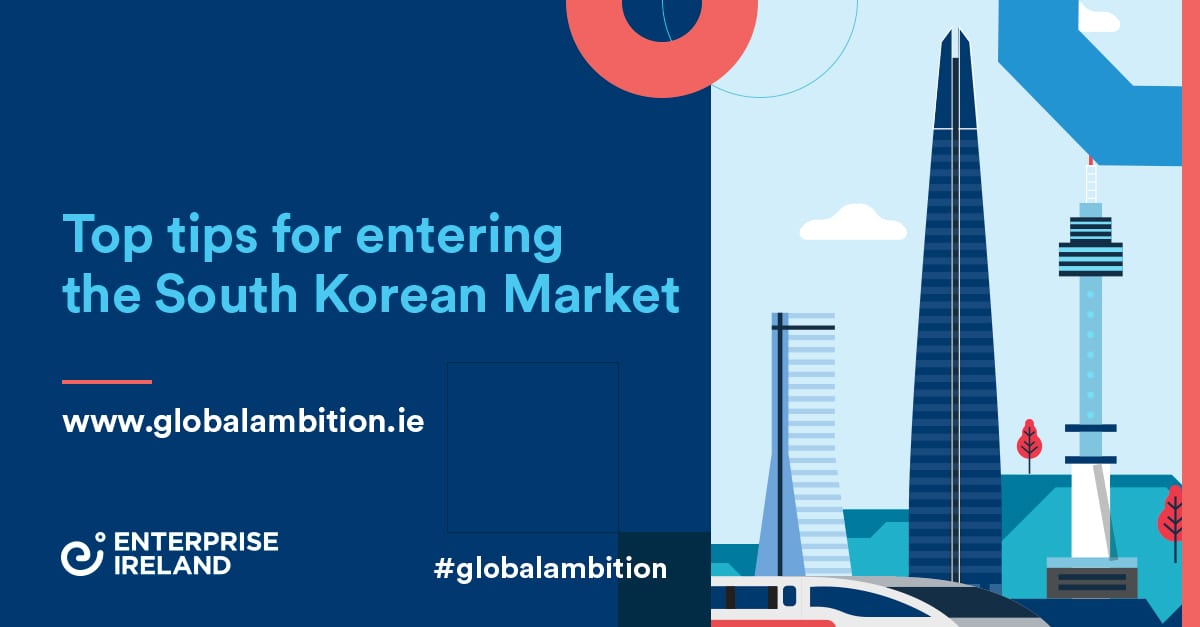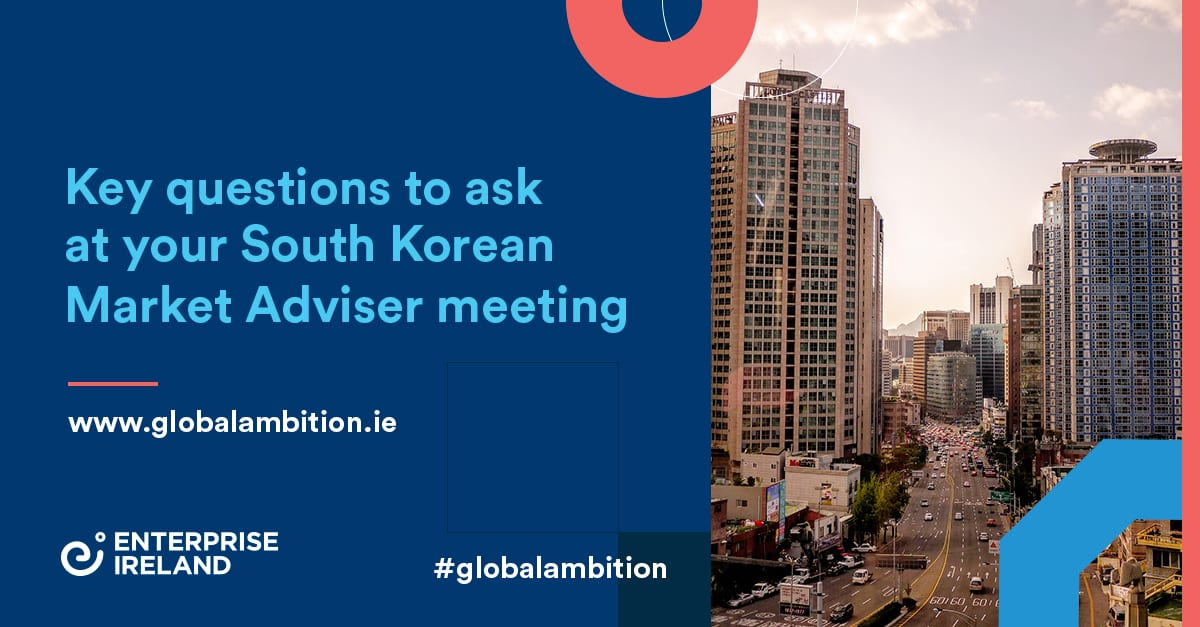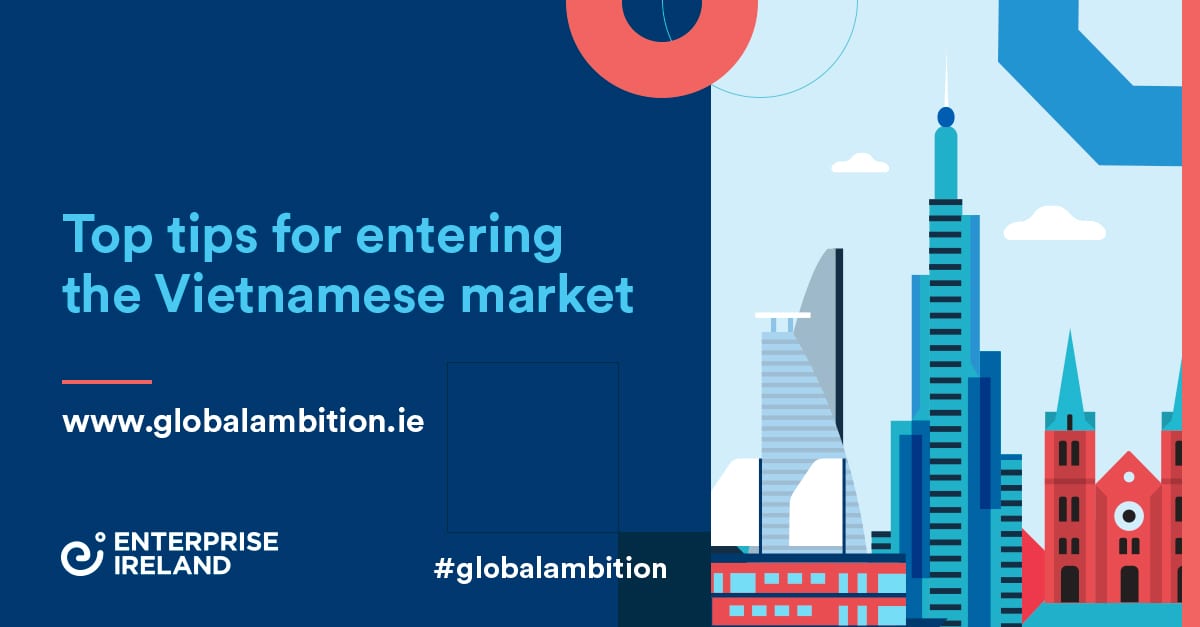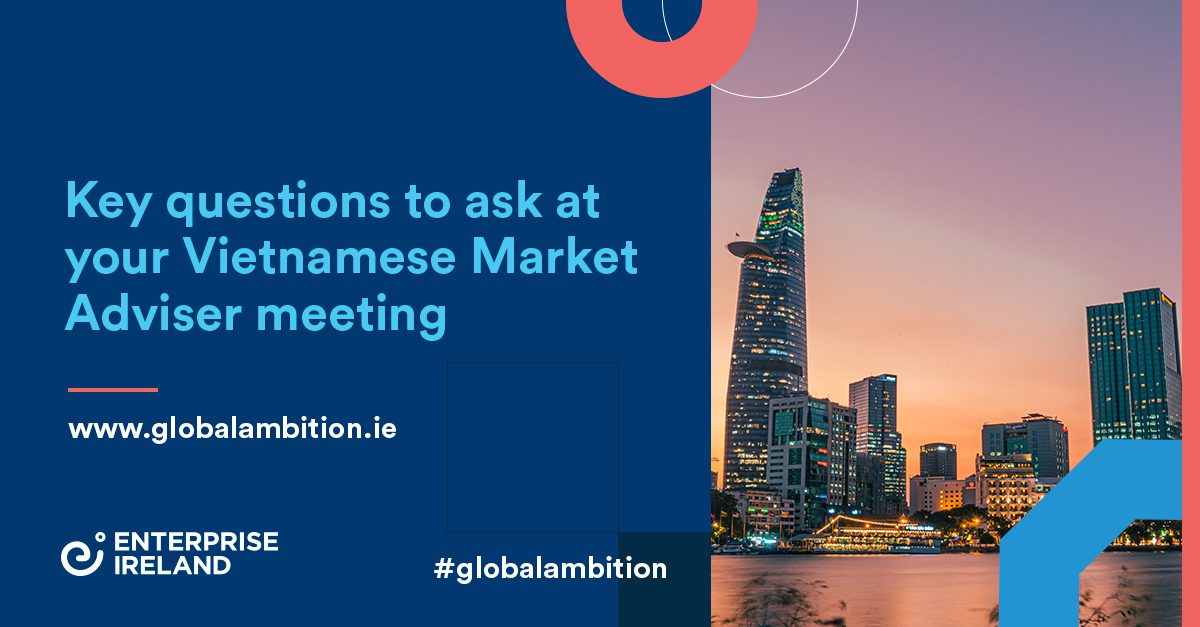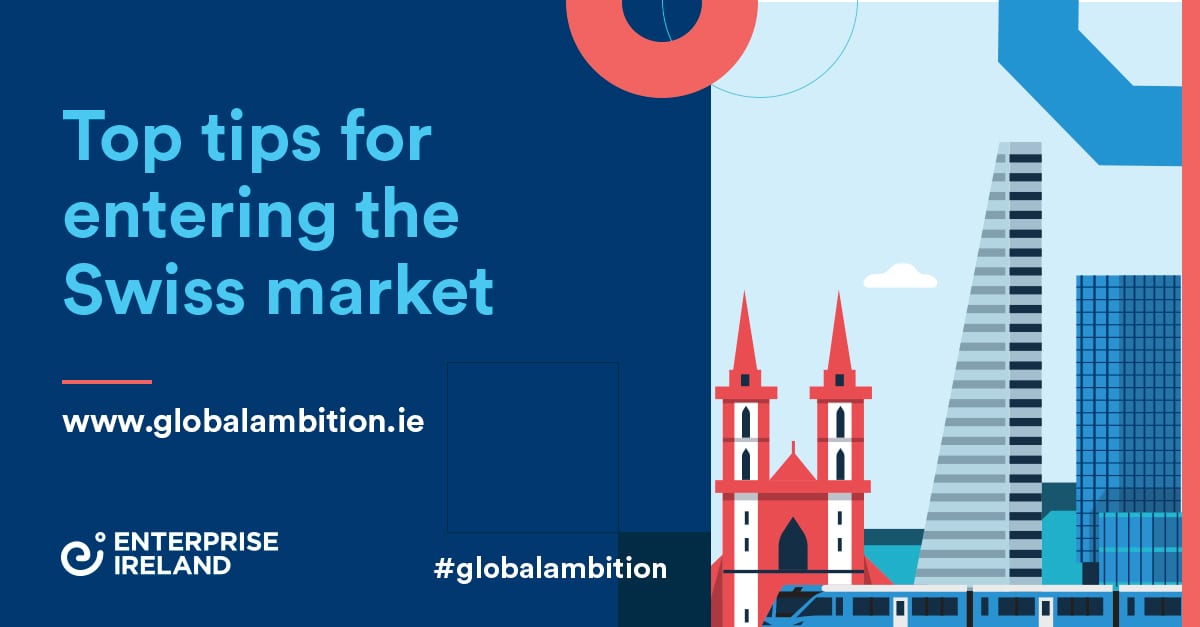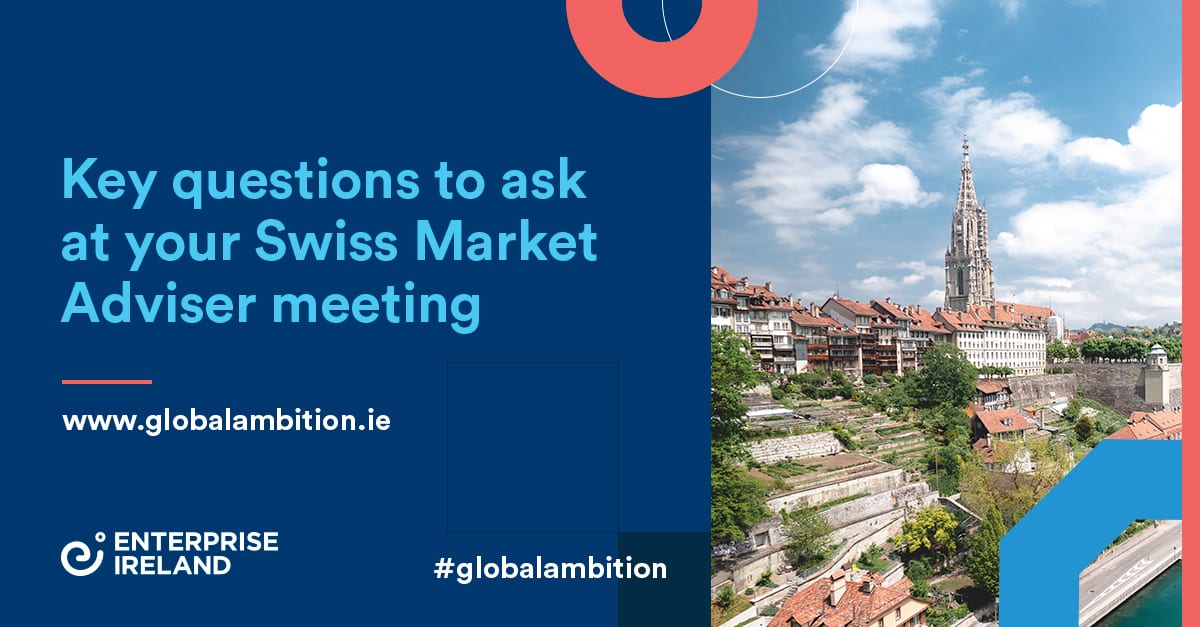Enterprise Ireland’s top tips for entering the French market
France will be Ireland’s closest geographical neighbour in the European Union after Brexit. As both countries are members of the EU, trade between France and Ireland is greatly facilitated by a common currency, free movement of goods and services, and regulatory alignment.
France is the world’s 7th largest economy and home to many internationally renowned businesses, from telecommunications giant Orange, to international pioneer in aerospace Airbus, and leaders in luxury consumer goods like the LVMH group. For Irish businesses with the ambition to go global, the French market boasts many opportunities- if you follow our top tips!
- Build trust
It is important to remember that when approaching a French partner or buyer, you are completely unknown. Reassuring your targets that you are serious and that you have valuable ways to fill gaps and solve their problems should be your number one priority. Approaching your targets in the correct way i.e. through being introduced through other contacts or EI Market Advisors and having a strong value proposition and case studies prepared in advance is key to appearing credible to a potential customer.
Gaining the trust of your customers means you will also receive it. It is often said that the French are reluctant to break their supply chains for new products and services and disrupt existing relationships, which presents a hurdle to Irish businesses entering the market. However, once you do secure a French customer and gain their trust, you will find them to be very loyal. Going forward, they will tend to work with you to resolve issues rather than go straight to your rival.
- A strong value proposition is vital.
This reluctance to change suppliers means that ‘me too’ products are unlikely to succeed in the market. Before approaching decision-makers, it is vital to have done extensive research and competitor analysis and have a strong value proposition for your product. Remember that in France, improvements on products or processes are not enough to be considered innovative. The French tend to look for new ways of doing things, or entirely new approaches, to consider something an ‘innovation’.
- Know your customer
Carrying out extensive market research through Enterprise Ireland’s Market Research Centre and by talking to the Market Advisors is vital before approaching any potential prospects. As well as validating the market opportunity for your value proposition, this will help you identify the best targets (for example, French businesses in France rather than multinational firms in France that do not have power over buying decisions), and the correct people to target within organisations.
French business culture is very hierarchical and understanding the organizational structure of the types of companies you wish to target is also very important. There may be several people to go through before reaching the Purchasing Manager or Director of Procurement. Don’t eliminate anyone as not being influential in the purchasing process, however, the final decisions will be made at the top level.
- Pay attention to detail.
France loves detail. French buyers will expect to see great attention to detail both in your product and service offering and in the way you do business. Small mistakes are a big deal and could cost you a sale.
Getting your product or service to market in France will require lots of work in terms of compliance, respecting regulation and red tape. While these might sound like barriers to entry, they are there to establish and protect quality. In fact, they ensure a level playing field amongst all competitors.
- Don’t (always) take no for an answer.
When doing business in France, one of the most common words heard in meetings will be “Non”. This is not a negative but the first step on the road to “Oui”. “Non” forms the basis of a discussion with your intended partner or client that will deal heavily with specifics and navigating French regulatory compliance. In France, an argument is usually the precursor to a discussion.
Therefore, it is so important to have a strong value proposition and understanding of why your product is the best one for the buyer, before entering discussions.
- French language skills.
While many French businesspeople have excellent English, communicating in French is preferred and having a native French speaker sends a very strong signal of your intent. Hire an interpreter for your initial meetings in the French market. Make the effort to have marketing and web material accurately translated, preferably by a native French speaker. It is also very important to be cognizant and respectful of your use of language with potential customers- always use formal language and never address anyone using their first name unless invited.
The only exception to this rule is in the Digital Technologies sector, where most business is conducted through English.
- Be patient.
If you intend to do business in France, you must be patient. Deals take time, partnerships need to be nurtured, and even the most routine meetings need to be set up well in advance. Rushing things will be perceived poorly in France.
French business culture takes time because of its approach to detail, and the value it places on evidence-based decision making. This patience pays off, as once a decision is made, it is usually not revisited.
If you are considering doing business in France be sure to reach out to our teams in Paris and Lyon and read our Going Global Guide for more information.

